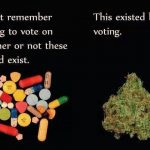Source: The Guardian
26 december 2013
The family of a British man serving 10 years in prison in Malta for cannabis offences is petitioning the European commission alleging “systemic discrimination” against non-Maltese offenders.
Daniel Holmes, from south Wales, was convicted in 2011 five years after his arrest and the sentence was confirmed by appeal court judges in October. The case has fuelled a debate over the country’s drug laws, with the opera tenor Joseph Calleja joining protests at what he calls a disproportionate punishment.
Critics argue that more serious drug offenders and other criminals guilty of rape, grievous bodily harm and fraud have received shorter sentences than Holmes, 35. He had hoped to split charges and pleaded guilty to possession and cultivation of cannabis for personal use but was unable to do so and was penalised for importation and trafficking as well.
Supporters say he admitted offences on legal advice expecting to receive less punishment. His lawyer had suggested a four-year jail term and the prosecutors had wanted eight.
Appeal judges, upholding the sentences including a €23,000 (£19,270) fine, said Maltese law made no distinction “between one dangerous drug and another”. Holmes had admitted serious offences, some carrying life sentences, and had more than a kilo of cannabis, they said.
Since the appeal court judgment, there has been more anger after a Maltese man, already serving 11 years for trafficking drugs, was sentenced to three and a half years in prison and fined €3,000 for growing almost twice as much cannabis as Holmes.
Holmes told the Guardian he was buoyed by the Maltese people who had campaigned on his behalf, including on protest marches. “Although I am a foreigner, it is not just [about] my case. It is the whole system and the way it works.” Everything “moves so incredibly slowly”, added Holmes.
“Although I have been pretty much always a cannabis smoker, I have held down jobs and never let it get in the way of my life.”
Holmes went to Malta in 2005 in the hope of combining work as a chef and his passion for scuba diving but was unable to find work. He and another Briton with whom he shared a rented flat, Barry Lee, were arrested in June 2006. Holmes was freed on bail after 11 days but was arrested the following year for being in a stolen car, though later acquitted and released.
Lee was found dead in a prison cell in Malta in 2010. A coroner in Bolton, UK, later recorded an open verdict because he was not convinced Lee intended to kill himself, according to local newspaper reports.
Holmes spent about a year in prison in all before finding work at a pub, where he met his now wife Marzena, who is Polish, in 2009, well before his trial. They have a two-year-old daughter Rainbow.
“It is incredibly hard,” he said. “I have missed enjoying (Rainbow’s) first tooth,” said Holmes. “She is growing so fast but she was so shy. She asked this time ‘Why is Daddy not coming with us?'”
Facing another Christmas in jail, Holmes said: “It is not a nice place to be. There are a few of us who try to look on the bright side, play Ludo, have a bit of Christmas cake but it is a very bleak time of year.” The British embassy and Foreign Office had been “terrible and maddening” in their lack of support, Holmes said. Apart from channelling money from and to his family, “they have given me no help. It has caused my mum and dad much more stress.”
Holmes’s father Mel, said: “Daniel has now done three years altogether for the crime and that should be long enough.” The family was considering further legal action in Malta and, depending on the result, taking the case to the European court of human rights. Mel has also written to the European commission, alleging the justice system was “based on systematic discrimination against anyone who is not Maltese”.
He and his wife Kate, both retired teachers, have so far spent about £30,000 in financial support for their son including rent, legal fees and travelling to see him.
Opera singer Calleja, Malta’s cultural ambassador, said via his Facebook page hoped before Holmes’s appeal he hoped “good sense and true justice” would prevail.
He told the Guardian: “It is in the hands of our politicians to review the laws so that the relevant judges, magistrates whatever, are able to implement them correctly.”
No one argued Holmes should not have been punished, said Calleja. “What people argue is: ‘Is the punishment disproportionate?’ I think that it is. More serious drug offenders have received less punishment.”
What Holmes had done was “stupid” and “illegal” but his own internet research suggested marijuana was less dangerous than cigarettes and alcohol.
Owen Bonnici, Malta’s parliamentary secretary for justice, said: “The government takes the enforcement of drug laws very seriously.” Drug trafficking was “a heinous crime” because it led to the destruction of innocent victims.
But when it came to drug possession, said Bonnici, “the government is aware that most of the time the offenders are themselves victims of drug abuse.
“This means that a discussion should immediately be undertaken in our country so that people who are accused with the crime of drug possession are effectively helped … to come out of drug abuse. In most of the cases the sending of victims of drug abuse to jail would effectively make their drug abuse problem even worse.” Such reforms should be in place by the end of next year.
The Foreign Office said: “We are aware of the detention in Malta of Daniel Holmes, and his recent appeal. We continue to provide consular assistance to Mr Holmes and his family.”




 Creative Commons Attribution
Creative Commons Attribution